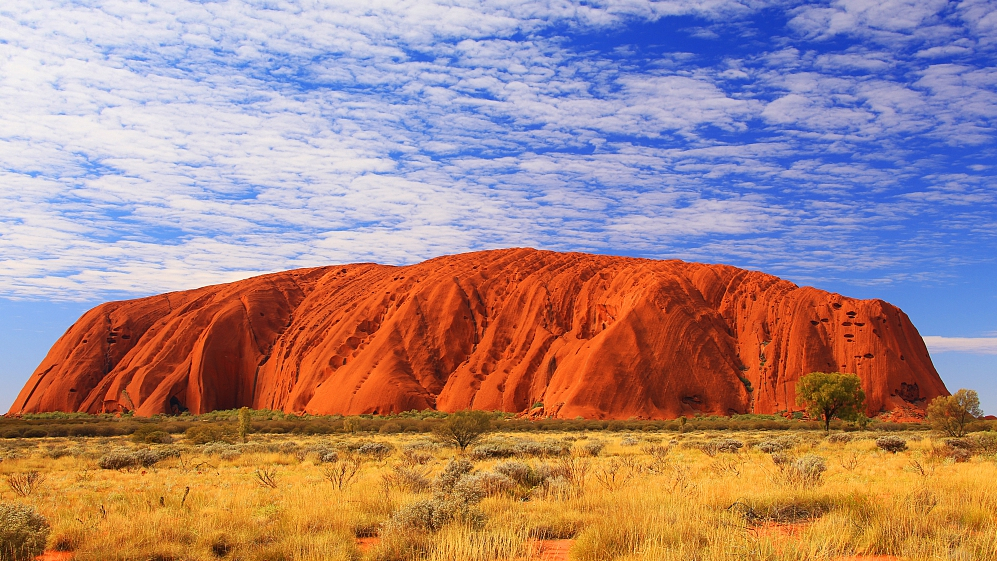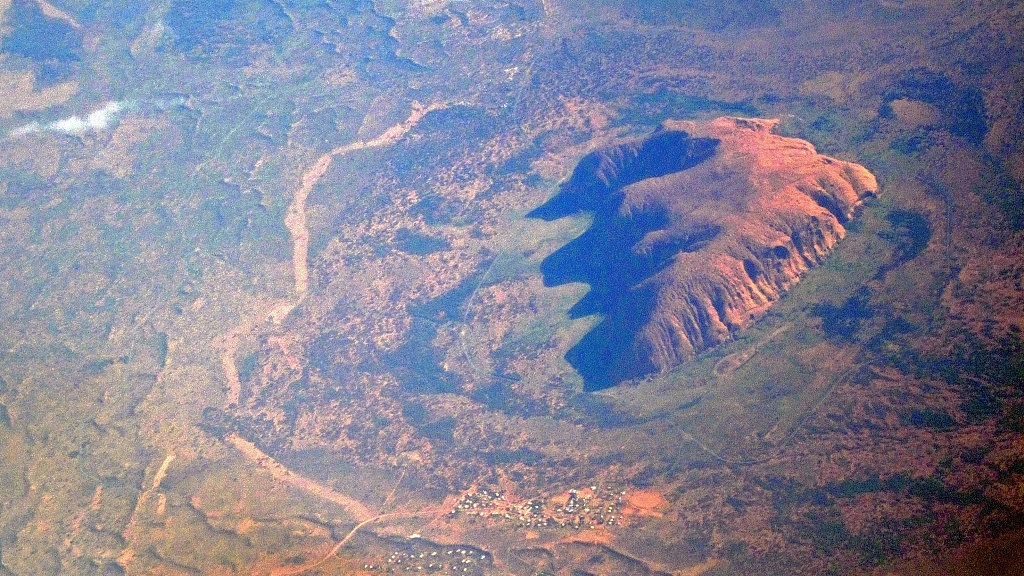

Australia's iconic Uluru has been inundated by trespassing tourists and an "influx of waste" before the climbing ban comes into effect in October.
With three months to go until the closure, all accommodation near the iconic rock, which is a sacred site for indigenous Australians, is at capacity and tourists are camping illegally.
The board of the Uluru-Kata Tjuta National Park in November 2017 voted unanimously to permanently close the Uluru rock climb from Oct. 26.
Stephen Schwer, chief executive of Tourism Central Australia, told the Australian Broadcasting Corporation (ABC) on Thursday that landowners in the area were reporting high levels of trespassing.
He said that roadside campers were putting the environment at risk by inappropriately dumping rubbish.

An aerial view of Uluru-Kata Tjuta National Park in Australia. /VCG Photo
"(Tourists) think they're doing a good thing by free camping along the way; what they are actually doing is trespassing on pastoralist and joint-managed and protected land, and a lot of people don't seem to be getting that message," Schwer said.
"When there is the kind of influx of drive travel as we are seeing at the moment, there is an influx of waste."
Climbing Uluru has been frowned upon by indigenous Australians since the practice began.
Traditional owners have asked visitors not to climb it since the land was returned to them in 1985 and signs asking people to reconsider the climb have been in place at its base since 1992.
At least 37 people have died climbing the rock, which was formerly known as Ayers Rock, since the 1960s. Last year a Japanese tourist collapsed and lost consciousness while climbing the rock and didn't survive.
Schwer urged everyone who wants to visit Uluru in the coming months to plan well in advance.
(Cover: Uluru-Kata Tjuta National Park in Australia. /VCG Photo)

Copyright © 2018 CGTN. Beijing ICP prepared NO.16065310-3
Copyright © 2018 CGTN. Beijing ICP prepared NO.16065310-3